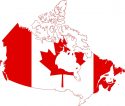Where Should I Study? A List of Top Canadian Universities in 2022

By Olivia Condlln-Wilby
Many students are anticipating the next step in their journey – whether that means starting post-secondary education, entering the workforce, or taking some time to figure things out. Whatever path you choose, it’s natural to feel overwhelmed by the future – especially given everything that has happened in the world over the past few years. You may be wondering, “what is 2022 going to look like for students?” or “how can I make a decision under such unpredictable circumstances?” This article aims to provide some answers and help you understand the post-secondary options available. You are welcome to use it as a guide as you move forward in your academic career.
- Simon Fraser University – Burnaby, British Columbia
According to Maclean’s, Simon Fraser University (SFU) ranks highly in public reputation, student satisfaction, and access to scholarships. For students interested in sports, it is worth noting that several Olympic Gold medalists – including Justin Kripps and Hayley Wickenheiser – spent time at SFU. In addition, it is the first and only university in Canada to join the National Collegiate Athletic Association.
In terms of academics, the university offers a wide variety of programs. Students can study education, business, and technology, among other topics. SFU is one of the top research universities in Canada.
- University of Victoria – Victoria, British Columbia
The University of Victoria (UVic) is renowned for its research, faculty, and academic rigour. It is among the top universities in North America for international research collaborations and scientific impact. Furthermore, it houses esteemed research institutions like Ocean Networks Canada and the Pacific Institute for Climate Solutions. If you’re interested in a science degree, UVic might be perfect for you.
This university is also known for providing quality Indigenous programming. Since 2018, it has consistently been named the number one school in Canada for promoting Indigenous visibility. Students can choose to complete a joint program in Canadian common law and Indigenous legal orders, earning two professional degrees in the process. This is the first program of its kind in the world.
- University of Waterloo – Waterloo, Ontario
The University of Waterloo (UW) excels at setting students up for the workforce. Students have the chance to apply their learning to practical experiences like co-op placements and community service while forming connections with future employers, industry leaders, and professional researchers.
The school has a network of more than 7,000 employers – the largest of any university in North America. Students can complete multiple paid work terms during their studies, gaining experience in their field and potentially reducing their student debt in the process. As of 2022, UW has the highest graduate employment rate in Canada.
- University of Guelph – Guelph, Ontario
The University of Guelph (UG) offers a wide variety of academic programs, including prestigious degrees in Justice and Legal Studies and Sport and Event Management. It is perhaps best known for its scientific programs, specifically biomedical science and graduate-level veterinary science. In addition, the university’s research primarily focuses on food security, environmental conservation, and sustainable development. If you’re considering a future career in agriculture, medicine, or animal science, this school is an ideal option.
- Carleton University – Ottawa, Ontario
Carleton University offers well-regarded programs in journalism, engineering, and cognitive science. However, its most significant asset is its access to government agencies, local NGOs, and international companies. Many students complete paid co-op placements at Parliament Hill, including roles in administration and policy. Others work for technology companies, laboratories, media outlets, and school boards.
For students who envision a future in politics or government policy, attending Carleton University places you in the centre of work and volunteer experiences, professional contacts, and research opportunities.
Sources
Campbell, T. (2021, October 22nd). 2022 Maclean’s University Rankings: Comprehensive Schools. Maclean’s. https://www.schoolfinder.com/Discover/Article/27/5625/2022-Macleans-University-Rankings-Comprehensive-Schools
Carleton University. (2022). Co-operative Education. https://carleton.ca/co-op/
Dwyer, M. (2021, October 7th). Maclean’s University Rankings 2022: Our Methodology. Maclean’s. https://www.macleans.ca/education/macleans-university-rankings-2022-our-methodology/
Maclean’s. (2022). Carleton University. https://www.macleans.ca/schools/carleton-university/
Maclean’s. (2022). University of Guelph. https://www.macleans.ca/schools/university-of-guelph/
QS TopUniversities. (2022). University of Guelph. https://www.topuniversities.com/universities/university-guelph
QS TopUniversities. (2022). University of Victoria (UVic). https://www.topuniversities.com/universities/university-victoria-uvic#profile-university
Simon Fraser University. (n.d.). SFU Olympians. https://athletics.sfu.ca/sports/2015/4/25/Clan%20Olympians.aspx
Simon Fraser University. (n.d.). Who We Are. https://www.sfu.ca/about/whoweare.html
University of Victoria. (n.d.). Joint Degree Program in Canadian Common Law and Indigenous Legal Orders (JD/JID). https://www.uvic.ca/law/admissions/jidadmissions/index.php
University of Waterloo. (n.d.). Undergraduate Programs: Co-Op and Careers. https://uwaterloo.ca/future-students/co-op





Leave a comment!